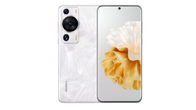
“Harmony OS will be compatible with many devices, such as smartphones, tablets, TVs, in-vehicle systems, watches etc”
Huawei has just announced its home-made operating system, Harmony OS, at an event in China. Harmony OS is the official name of the long-rumoured HongMeng OS, which was initially being pegged as a replacement for Android. The new Huawei operating system will support a wide variety of devices, include smartphones, tablets, computers, smartwatches, smart TVs, smart speakers, in-vehicle systems, etc. The company says Harmony OS is “a deterministic latency engine that gives a smooth interactive experience. That means latency is at a minimum; bringing fluid interactive experience.” At the same event, the company also announced its Android Q-based EMUI 10 custom skin for smartphones.
“Harmony OS is completely different from Android and iOS,” says Richard Yu, CEO – Huawei Consumer Business Group. “It is a microkernel-based, distributed OS that delivers a smooth experience across all scenarios. It has trustworthy and secure architecture and it supports seamless collaboration across devices. You can develop your apps once, then flexibly deploy them across a range of different devices.”
HarmonyOS has just been announced at #HDC2019! How are we going to build an all-scenario smart ecosystem and experience? How will we overcome the challenges of future OS for connected things? Stayed tuned with us to find out. pic.twitter.com/x7ZbgcEy2d
— Huawei Mobile (@HuaweiMobile) August 9, 2019
According to Huawei, Harmony OS will be open source, with developers allowed to create apps for it using the ARK Compiler. It is a microkernel-based, distributed operating system, designed for application on different devices. The OS is said to offer precise resource scheduling with real-time load analysis and forecasting as well as app characteristics matching. The OS will be AI-compatible, so we can expect the brand to introduce either a new digital assistant with the OS or offer AI-compatibility to other assistants. Harmony OS will be TEE-verified “for improved security across multiple smart devices in a connected all-world scenario.”
While the HongMeng OS was rumoured to be in development for at least the past couple of years, it gained prominence during Huawei’s trade blacklisting by the US. According to Huawei, Harmony OS is not a replacement for Android, but can be used on smartphones if its access to Android is cut off. This means Huawei phones and tablets will continue to use Android, with Harmony OS a fall-back option if things go bad. Harmony OS will be headed to Honor smart TVs first, followed by Huawei and Honor wearables and laptops next year.
“We believe Harmony OS will revitalise the industry and enrich the ecosystem,” Yu added. “We want to invite developers from around the world to join us as we build out this new ecosystem. Together, we will deliver an intelligent experience for consumers in all scenarios.”






![[Exclusive] This is your first look at Huawei Nova 10 Pro Thumbnail](https://www.91-cdn.com/hub/wp-content/uploads/2022/06/Huawei-Nova-10-Pro-feat.png?tr=h-110,q-100,pr-true)










